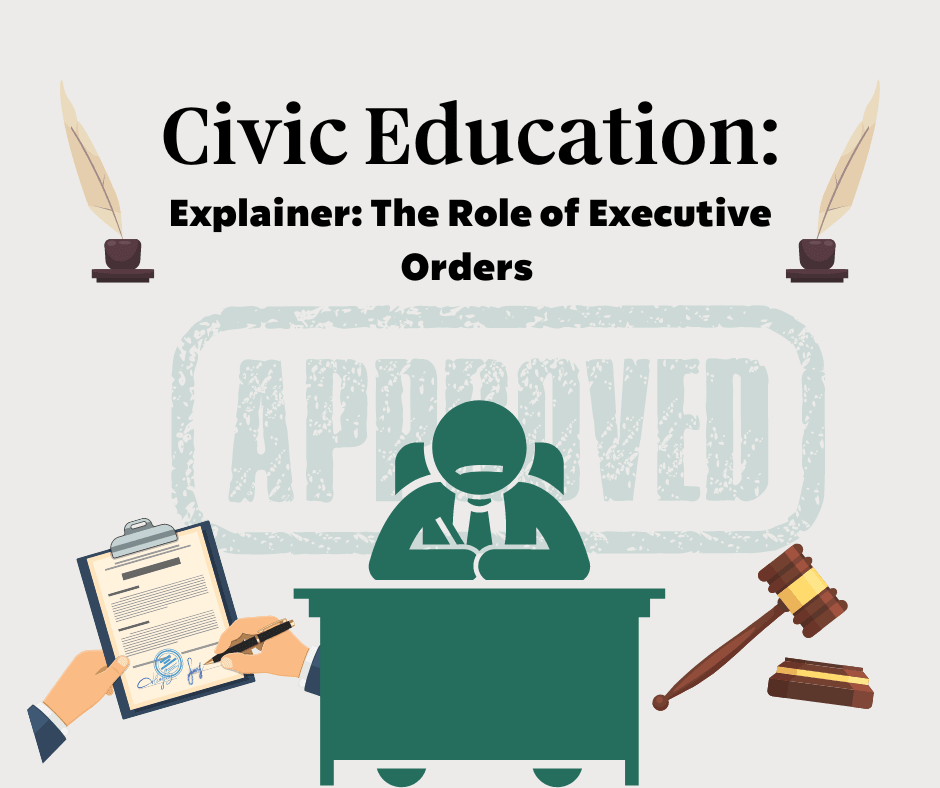
Explainer: The Role of Executive Orders
Do presidents have too much power?
Executive orders are a powerful tool wielded by the president to shape policy and drive action without involving Congress. This grants the president the ability to make decisions when time is of the essence or Congress is unable to act promptly.
Here's how executive orders impact our nation and shape our government.
What can executive orders do?
-
Executive orders empower the president to effectively govern and manage the executive branch. Executive orders can be used to direct government agencies, establish committees or task forces, and implement policies that may face legislative gridlock.
-
Executive orders often tackle matters that require immediate attention or those on which Congress has not acted upon. Examples include addressing national emergencies, implementing administrative reforms, and promoting social or economic changes.
-
The courts view executive orders as legally valid unless in violation of the Constitution.
Limitations of executive orders
- While executive orders can be as powerful as federal law in some cases, Congress can create a new law to cancel out an executive order, or can refuse to provide necessary funding.
- Executive orders operate within the president's authority, and cannot breach existing laws and constitutional provisions. Their validity may be subject to judicial review, which serve as a check on potential abuses and ensure alignment with constitutional principles.
- Drafting an executive order also involves time-consuming negotiations with agencies.
Landmark executive orders
- On January 1,1863, President Abraham Lincoln issued the Emancipation Proclamation, which declared the freedom of over three million slaves throughout the Confederate States.
- During World War II, President Franklin Roosevelt issued Executive Order 9066 to relocate people of Japanese descent into internment camps.
- On January 27, 2017, President Trump signed an executive order which indefinitely suspended the entry of Syrian refugees and reduced the number of refugees allowed into the United States.
- On May 14, 2023, President Biden issued an executive order to increase background checks for gun purchases and promote better, more secure firearms storage.
Executive orders are vital for shaping U.S. policy and governance. When used wisely, executive orders can guide our nation effectively. But as with any governance tool, balancing efficiency with democratic values of transparency, accountability, and public engagement is crucial.
Do you think the president has too much power, or too little?